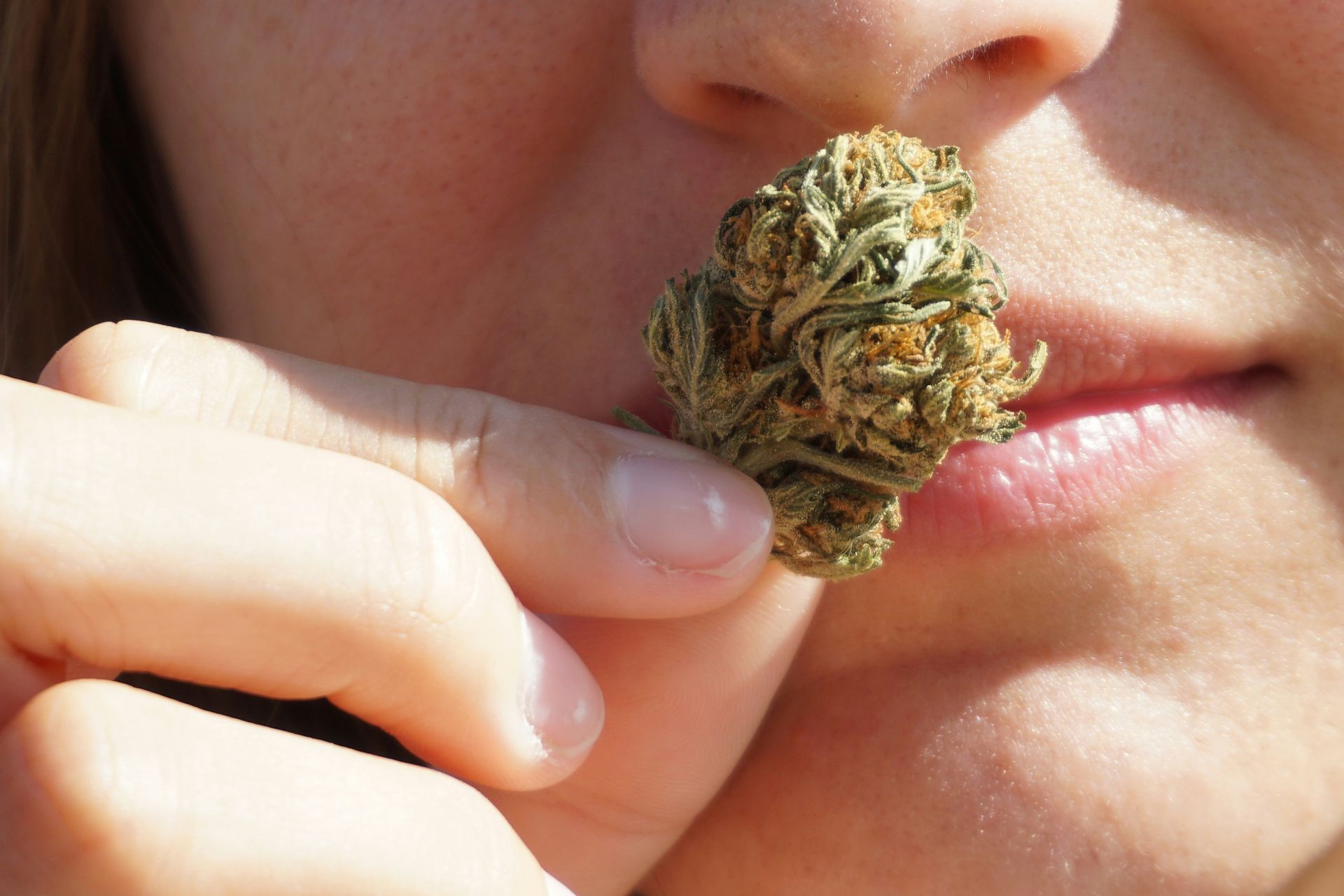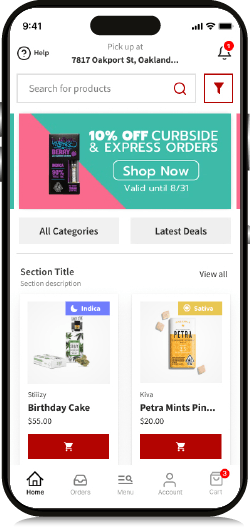
Cannabis is becoming more popular for both recreational and medicinal use, but have you ever wondered how it interacts with other medications? Understanding drug-drug interactions is crucial, especially if you’re using prescription medications or over-the-counter drugs. While some potential drug interactions may be mild, others could lead to a clinically significant drug-drug interaction that affects potency, side effects, or overall effectiveness. In this blog, we’ll break down the most common potential drug-drug interactions, how cannabis may influence interactions with prescription medications, and what you should know to stay safe while enjoying its benefits.
The Effects of Cannabis When Combined with Other Drugs: What You Need to Know
Cannabis is widely used for relaxation, pain relief, and medical purposes, but what happens when it’s combined with other drugs? Whether you’re taking prescription medications, over-the-counter drugs, or supplements, understanding potential drug-drug interactions is essential to avoid adverse effects and ensure your safety.
Cannabis interacts with the body's cannabinoid receptors, which play a role in metabolism, pain regulation, and mood. When mixed with other substances, these effects can change—sometimes leading to clinically significant drug-drug interactions. The way your body processes a dose of drugs can be altered, affecting potency, side effects, and overall effectiveness. For example, cannabis may lower blood pressure, which could be risky when combined with antihypertensive medications.
Because cannabis affects a wide range of bodily functions, it’s important to consider the interactions between cannabis and other medications. If you’re on any prescription medications, consult a healthcare provider before use to avoid potential drug-drug interactions and reduce the risk of adverse effects.
By staying informed about potential drug interactions, you can enjoy the benefits of cannabis while minimizing any unwanted consequences.
CBD Drug Interactions: What You Need to Know
CBD is widely used for its potential therapeutic benefits, but does CBD interact with medications? The answer is yes—CBD can affect how your body processes certain drugs, leading to CBD drug interactions that may impact effectiveness and safety. If you're wondering what drugs should not be taken with CBD, it's essential to understand CBD medication interactions before adding it to your routine.
Here are the key facts about CBD drug interactions:
How CBD Interacts with Medications
CBD influences the body's cannabinoid receptors and interacts with the cytochrome P450 enzyme system, which plays a key role in metabolizing many drugs. This can result in CBD interactions that either slow down or speed up how certain medications are processed, leading to potential drug-drug interactions.
What Medications Should Not Be Taken with CBD?
If you're asking what medications does CBD interfere with, here are some of the most common concerns:
- Blood thinners (e.g., Warfarin): CBD may slow metabolism, increasing the risk of excessive bleeding.
- Blood pressure medications: CBD can lower blood pressure, potentially amplifying antihypertensive effects.
- Antidepressants and anti-anxiety medications: CBD may increase sedation when combined with SSRIs, benzodiazepines, or mood stabilizers.
- Painkillers and opioids: CBD may enhance or reduce pain relief, affecting treatment outcomes.
CBD and THC: Additional Considerations
When it comes to cannabis medication interactions, THC interactions with other medications can also be significant. If you’re wondering what medications should not be taken with THC, the concerns are similar, but THC's psychoactive effects may add risks such as dizziness or cognitive impairment.
Questions like does weed interact with any medications, does hemp interact with medications, or can weed interfere with medication are becoming more common as cannabis use increases. Whether it’s medications with THC or weed and medication interactions, it’s important to be aware of potential risks and discuss them with a healthcare provider.
How to Reduce the Risk of Adverse Effects
To avoid clinically significant drug-drug interactions, consider the following:
- Consult your doctor before using CBD or THC with other medications.
- Start with a low dose and monitor any changes in how your medications work.
- Watch for adverse effects like dizziness, drowsiness, or fluctuations in blood pressure.
By staying informed about CBD and medications, you can safely enjoy the benefits of cannabinoids while minimizing potential drug interactions and ensuring your treatment plan remains effective.
Cannabis interacts with other recreational drugs like cocaine and ecstasy (MDMA) in complex ways, potentially intensifying effects, altering metabolism, or increasing risks. These potential drug-drug interactions can impact both physical and mental health, sometimes leading to adverse effects.
Cannabis and Cocaine: Mixed Effects
Using cannabis with cocaine can lead to a wide range of effects, depending on dosage and individual tolerance. Cocaine is a stimulant that increases heart rate and blood pressure, while cannabis can either amplify or counteract some of these effects:
- Increased heart rate and blood pressure: Both substances raise heart rate, creating a potential risk for cardiovascular strain.
- Enhanced euphoria or paranoia: Some users report a heightened psychoactive experience, while others experience increased anxiety or paranoia.
- Metabolic interactions: The liver processes both drugs, potentially altering their metabolism and dose of drugs in the bloodstream.
Cannabis and Ecstasy (MDMA): Neurochemical Changes
Mixing THC with MDMA can lead to potential interactions affecting serotonin, dopamine, and other neurotransmitters. MDMA is a potent stimulant and entactogen, known for increasing energy and emotional warmth. Combining it with cannabis may:
- Modify MDMA’s effects: Some users report that cannabis intensifies euphoria, while others find it dulls MDMA’s stimulant properties.
- Increase cognitive impairment: Both substances can alter perception, memory, and coordination, increasing the likelihood of confusion or disorientation.
- Heighten dehydration risk: MDMA raises body temperature, and cannabis can intensify dry mouth and dehydration, creating a potential risk for heatstroke.
The Potential Risks of Mixing Cannabis with Stimulants
Combining cannabis with stimulants like cocaine or MDMA can lead to clinically significant drug-drug interactions, including:
- Increased strain on the cardiovascular system (elevated heart rate and blood pressure).
- Higher risk of anxiety, paranoia, or panic attacks due to overstimulation.
- Greater potential for dehydration, nausea, or dizziness.
Final Thoughts: Proceed with Caution
If you're considering using cannabis with other recreational drugs, it’s important to:
- Understand how each substance affects your body before combining them.
- Start with low doses to monitor interactions.
- Stay hydrated and be mindful of your environment to reduce risks.
Because potential drug-drug interactions can vary by individual, it's always wise to approach mixing substances with caution—or avoid it altogether.
How Does Cannabis Interact with Other Recreational Drugs Like Cocaine or Ecstasy?
When mixing substances, understanding the interactions between cannabis and other recreational drugs like cocaine or ecstasy (MDMA) is crucial. While some users seek additive effects, combining these substances can lead to potential drug-drug interactions that affect both physical and mental health. Whether you're a cannabis smoker or an occasional user, it's important to consider the risks, from changes in peak levels of substances to unexpected adverse events.
Cannabis and Cocaine: A Risky Pair
Both cannabis and cocaine affect the central nervous system, but in different ways. Cocaine is a powerful stimulant that increases energy and heart rate, while cannabis can either amplify or counteract these effects. The potential interactions include:
- Increased cardiovascular risk – Both substances elevate blood pressure, which may increase the risk of heart-related complications.
- Stronger euphoria or paranoia – Cocaine’s stimulant properties can intensify THC’s effects, leading to heightened adverse events like paranoia or anxiety.
- Metabolic interference – Cannabinoid drug-drug interactions may slow down or alter how the body processes cocaine, affecting its peak levels and duration.
Cannabis and Ecstasy (MDMA): Altered Effects
Mixing MDMA and cannabis can lead to potential interactions with serotonin and dopamine, two key neurotransmitters. This can cause:
- Changes in emotional effects – Some find cannabis enhances MDMA’s euphoria, while others experience confusion or drowsiness.
- Increased dehydration risk – MDMA raises body temperature, and cannabis can intensify dry mouth, making hydration essential.
- Possible need for dose adjustments – Combining MDMA and cannabis may require dose reduction to avoid overloading the nervous system.
Interactions with Prescription Drugs
Beyond recreational substances, cannabis can also interact with prescription drugs and prescribed medications. These pairs of drug interactions can affect metabolism, reduce drug effectiveness, or increase side effects. Some concerns include:
- Slowed metabolism of certain medications – Cannabis can interfere with liver enzymes that process prescribed medications, leading to unexpected drug levels.
- Dose reduction considerations – In some cases, cannabis may require adjustments to prescription drugs to maintain effectiveness and safety.
The Takeaway: Proceed with Caution
Whether smoking marijuana cigarettes or consuming edibles, combining cannabis with other substances can lead to potential drug-drug interactions that vary by individual. If you're using multiple substances, consider:
- Monitoring your body's response and adjusting consumption accordingly.
- Talking to a healthcare provider about dose adjustments if using prescribed medications.
- Being aware of the risks of cannabinoid drug-drug interactions and making informed choices.
While some may chase additive effects, the reality is that mixing cannabis with other substances—whether recreational or prescribed medications—can result in unpredictable reactions. Understanding these interactions can help ensure a safer experience.






